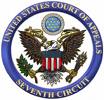Seventh Circuit Criminal Case of the Week: Reversing a Liddell Progress on Crack Sentencing
 The Seventh Circuit continues to struggle with the question of what it means for the federal sentencing guidelines to be “advisory.” In United States v. Booker, 543 U.S. 220 (2005), the Supreme Court held that the then-mandatory guidelines system violated the Sixth Amendment. The Court corrected the constitutional problem by converting the guidelines from mandatory to advisory. Then, in Kimbrough v. United States, 128 S. Ct. 558 (2007), the Court confirmed what even the government had recognized and conceded: “advisory” means that a district court judge may impose a sentence outside the recommended guidelines range on the basis of a policy disagreement with the guidelines.
The Seventh Circuit continues to struggle with the question of what it means for the federal sentencing guidelines to be “advisory.” In United States v. Booker, 543 U.S. 220 (2005), the Supreme Court held that the then-mandatory guidelines system violated the Sixth Amendment. The Court corrected the constitutional problem by converting the guidelines from mandatory to advisory. Then, in Kimbrough v. United States, 128 S. Ct. 558 (2007), the Court confirmed what even the government had recognized and conceded: “advisory” means that a district court judge may impose a sentence outside the recommended guidelines range on the basis of a policy disagreement with the guidelines.
But the intermediate federal appellate courts have been slow to follow Booker to its logical conclusion — which is why Kimbrough was necessary in the first place. Even after Kimbrough, several circuits, including the Seventh, have maintained that policy choices contained in § 4B1.1, the career offender guideline, remain binding on district court judges. This is particularly important, and unfortunate, to the extent that § 4B1.1 contains the infamous 100:1 disparity in the treatment of crack and powder forms of cocaine. That is a policy choice that district court judges ought to reject, and many doubtlessly would reject, if they were free to do so.
Last year, in United States v. Liddell, 543 F.3d 877 (7th Cir. 2008), a panel of the Seventh Circuit suggested that the court might be willing to reconsider its precedent on § 4B1.1. But then Friday’s decision in United States v. Welton (No. 08-3799) slammed the door shut.


